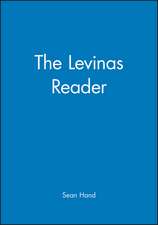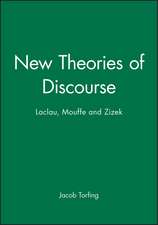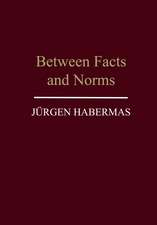Zizek and his Contemporaries: On the Emergence of the Slovenian Lacan
Autor Dr Jones Irwin, Dr Helena Motohen Limba Engleză Paperback – 18 iun 2014
| Toate formatele și edițiile | Preț | Express |
|---|---|---|
| Paperback (1) | 256.12 lei 43-57 zile | |
| Bloomsbury Publishing – 18 iun 2014 | 256.12 lei 43-57 zile | |
| Hardback (1) | 888.74 lei 43-57 zile | |
| Bloomsbury Publishing – 18 iun 2014 | 888.74 lei 43-57 zile |
Preț: 256.12 lei
Preț vechi: 330.48 lei
-23% Nou
Puncte Express: 384
Preț estimativ în valută:
49.02€ • 53.27$ • 41.21£
49.02€ • 53.27$ • 41.21£
Carte tipărită la comandă
Livrare economică 21 aprilie-05 mai
Preluare comenzi: 021 569.72.76
Specificații
ISBN-13: 9781441105134
ISBN-10: 1441105131
Pagini: 232
Dimensiuni: 138 x 216 x 15 mm
Greutate: 0.3 kg
Editura: Bloomsbury Publishing
Colecția Bloomsbury Academic
Locul publicării:London, United Kingdom
ISBN-10: 1441105131
Pagini: 232
Dimensiuni: 138 x 216 x 15 mm
Greutate: 0.3 kg
Editura: Bloomsbury Publishing
Colecția Bloomsbury Academic
Locul publicării:London, United Kingdom
Caracteristici
Demonstrates the seminal importance of Lacanian psychoanalysis for succeeding continental thought and politics
Notă biografică
Jones Irwin is Lecturer in Philosophy and Human Development in the Education Department at St Patrick 's College, Dublin City University, Ireland. Helena Motoh is Lecturer in Philosophy at the University of Primorska, Slovenia.
Cuprins
AcknowledgmentsIntroduction1. What Was Going On In Ljubljana?2. The Lacan Effect 3. From Punk to Cogito to Voice: On Mladen Dolar 4. 'Learn, Learn and Learn': On Zizek 5. 'From Haso to Mujo': On Zupancic Epilogue: 'We Don't Know What Will Become Of This Psychoanalysis'EndnotesBibliographyIndex
Recenzii
This is a wonderfully informative book, a kind of "Once upon a Time, Ljubljana," in which elevated philosophical debates and emerging political and cultural realities keep crossing over into each other's frames. It tells the story -- not anecdotally, but analytically, with a wealth of theoretical sophistication -- of how, from the tiny country of Slovenia, Slavoj Zizek and his closest colleagues, Mladen Dolar and Alenka Zupancic, encouraged and inspired by a phalanx of talented artists and intellectuals, launched a distinctive school of thought (both Lacanian and Marxist) with universal appeal. The real accomplishment of the "back story" is that it sets this thought into relief; that is, it tarnishes neither its distinction nor its universality.
This book is a long-awaited contextual account of the "Zizek-phenomenon", discussing its origins in the Slovenian School and beyond. Academically impeccable and eminently readable, with a bonus of three thoroughly enjoyable interviews.
This book is a long-awaited contextual account of the "Zizek-phenomenon", discussing its origins in the Slovenian School and beyond. Academically impeccable and eminently readable, with a bonus of three thoroughly enjoyable interviews.



















